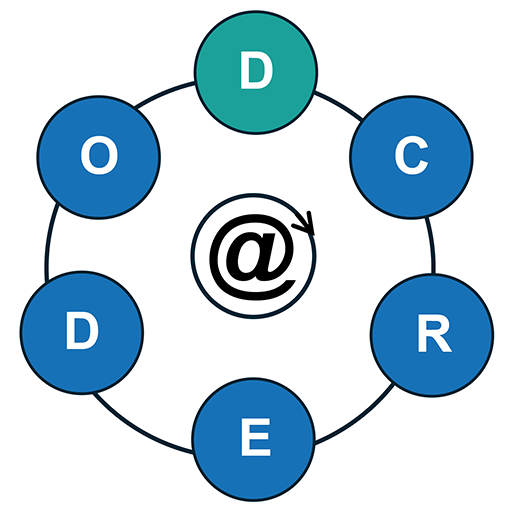On the 18th and 19th of October, the Institute for Medical Education (DAM) of the LMU University Hospital, in cooperation with Brainlab AG, organised a symposium on clinical reasoning for the second time in a series. The conference was chaired by Professors Martin Fischer and Matthias Stadler. It was held at the headquarters of Brainlab, a company specialising in advanced medical technologies, in Munich’s Messestadt Riem.
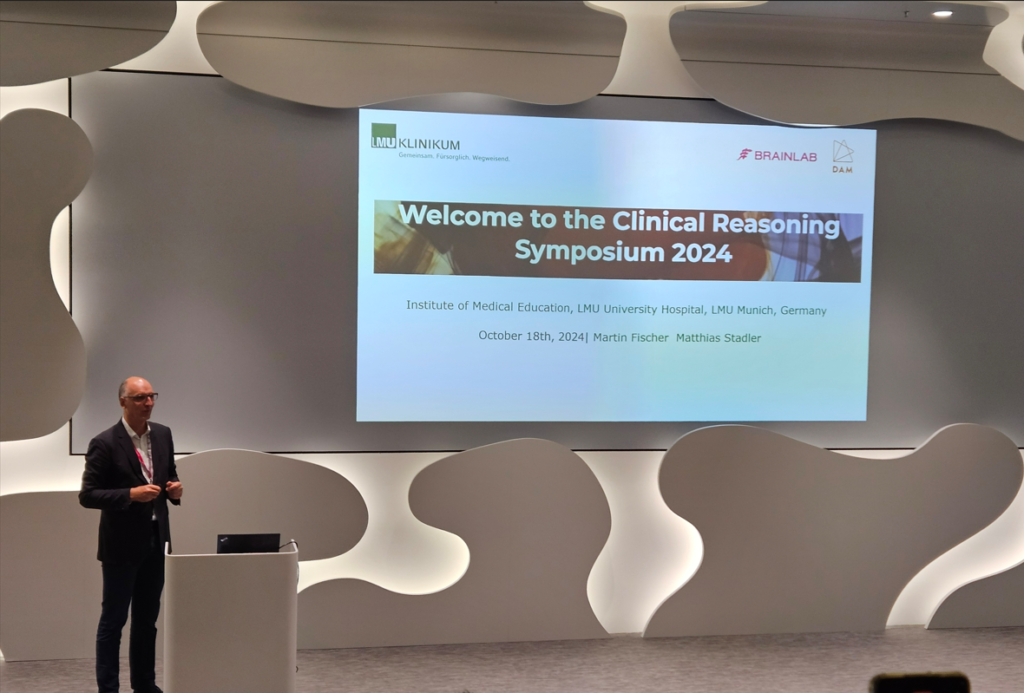
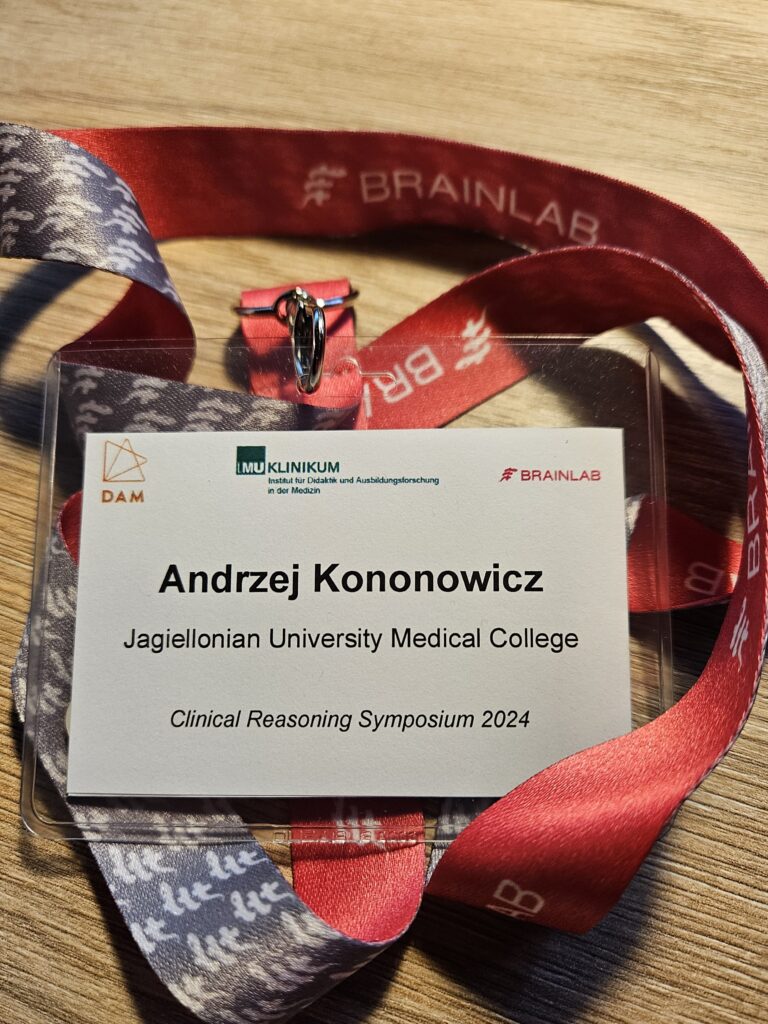
The aim of the conference was to discuss current issues related to the integration of clinical reasoning concepts into teaching, their enhancement through modern simulation technologies, and the advancement of research in clinical reasoning. Keynote speakers included Professors Henk Schmidt from Erasmus MC in Rotterdam, the Netherlands, Vitaliy Popov from the University of Michigan, USA, and Meredith Young from McGill University, Canada. Henk Schmidt led the audience on a journey through the history of clinical reasoning, beginning in the 1970s with the hypothetico-deductive approach, exploring developments and debates surrounding dual-process theory and deliberate reflection, and concluding with the use of ChatGPT to generate virtual patients for clinical reasoning practice. Vitaliy Popov’s talk, presented as an interactive Jeopardy-style show, allowed the audience to choose which of the many simulation-related studies of new technologies in clinical reasoning they wanted to hear about. In her closing presentation, Meredith Young highlighted the diversity of understandings of clinical reasoning and, consequently, the challenges of finding a common conceptual framework. She suggested that this could be addressed by making explicit the particular conceptualisation of clinical reasoning relevant to each piece of research, teaching or assessment.
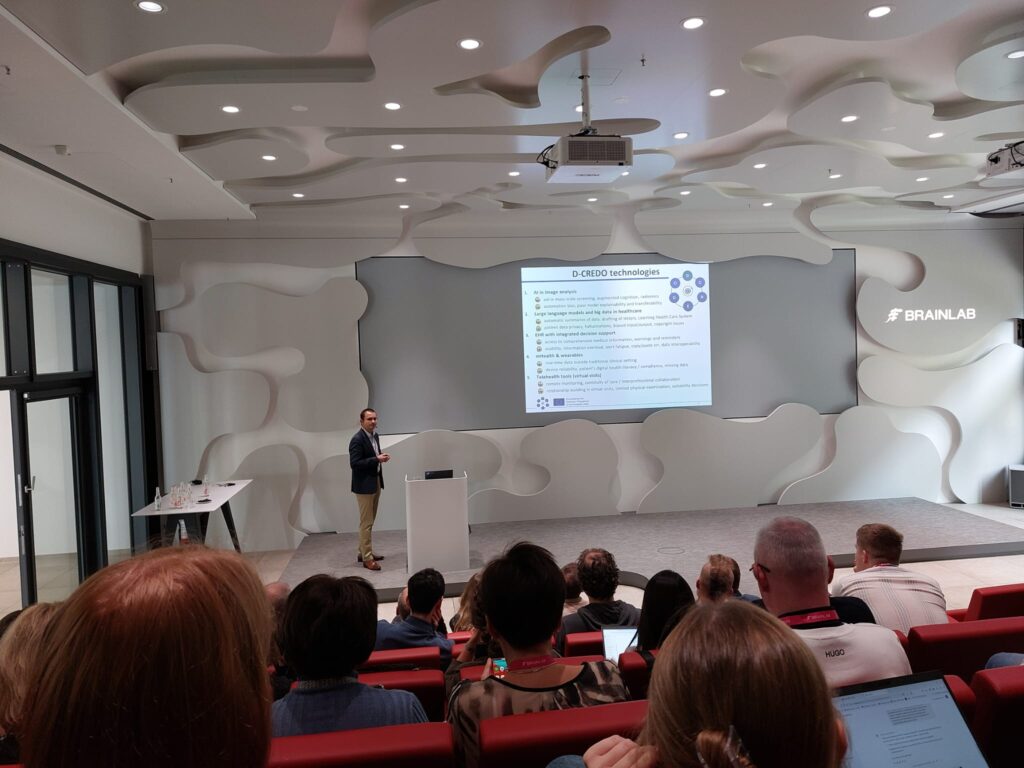
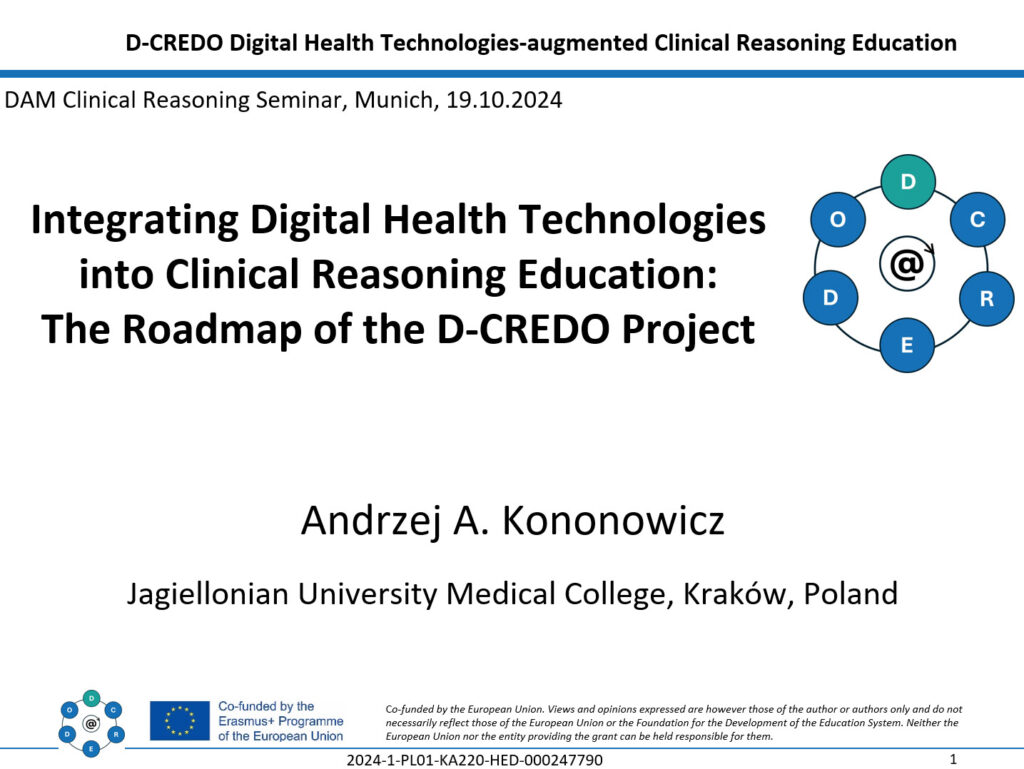
The D-CREDO project was represented at the event by Andrzej Kononowicz, who gave a presentation entitled “Integrating Digital Health Technologies into Clinical Reasoning Education: The Roadmap of the D-CREDO Project” as part of a session on teaching and formats. His talk began by contrasting the environment and tools used by physicians for clinical reasoning a century ago with those used today. This led to the introduction of the five categories of digital health tools that the D-CREDO project focuses on in clinical reasoning practice and education. While each new technology in medicine offers significant opportunities to improve clinical reasoning, it also presents risks that can be mitigated through proper education on its effective use. For example, AI-based image processing can enable mass screening or large language models can provide personalised educational feedback, but they also pose risks such as automation bias, where suboptimal models reduce clinician performance, or biased data generation that perpetuates unfair stereotypes related to race or gender. The presentation concluded with an overview of the project’s key milestones and an invitation to join the D-CREDO community in its efforts.

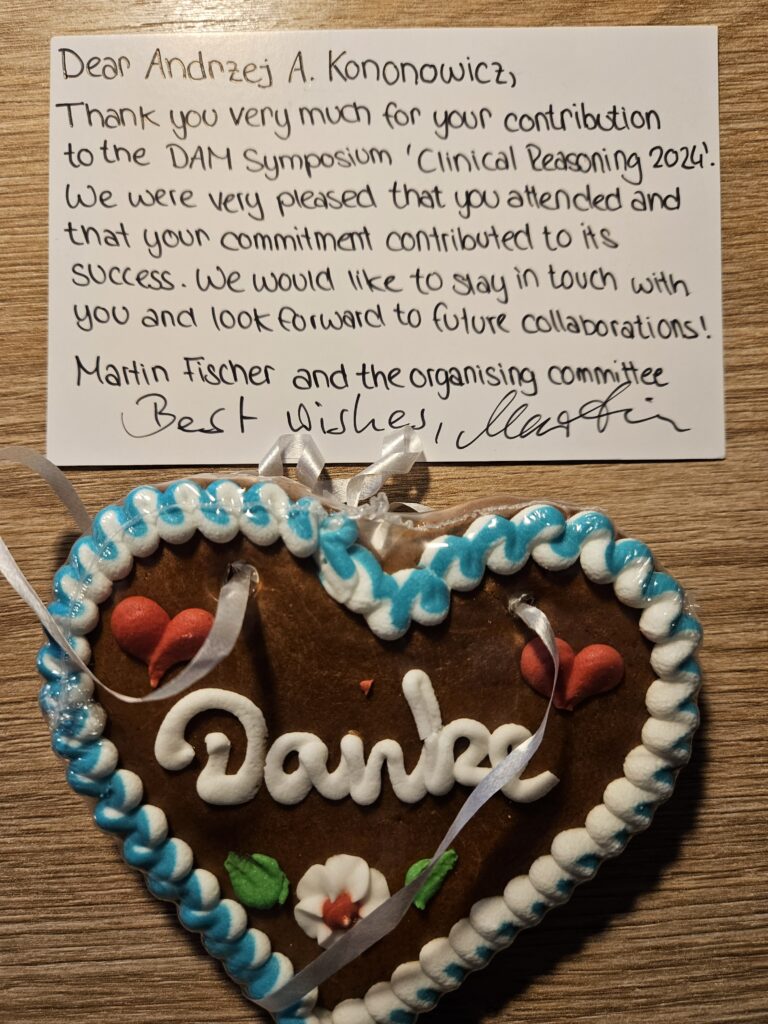
A dinner at the top of the former Munich-Riem airport control tower offered unforgettable views of the city at night and fostered many new international scientific connections that we hope will strengthen the D-CREDO network of expert partners.
